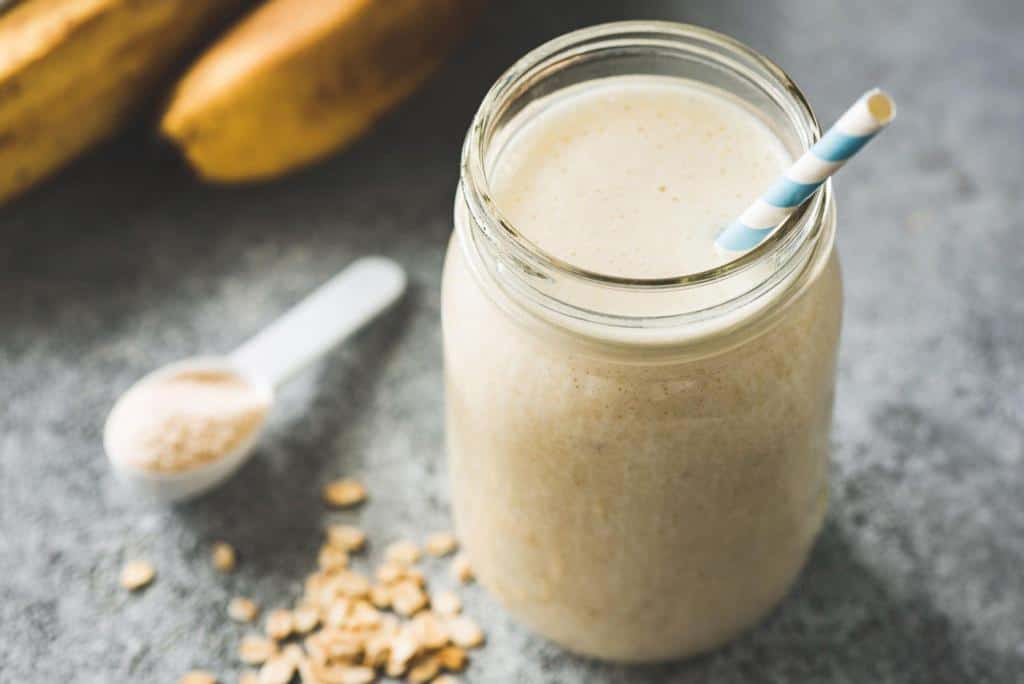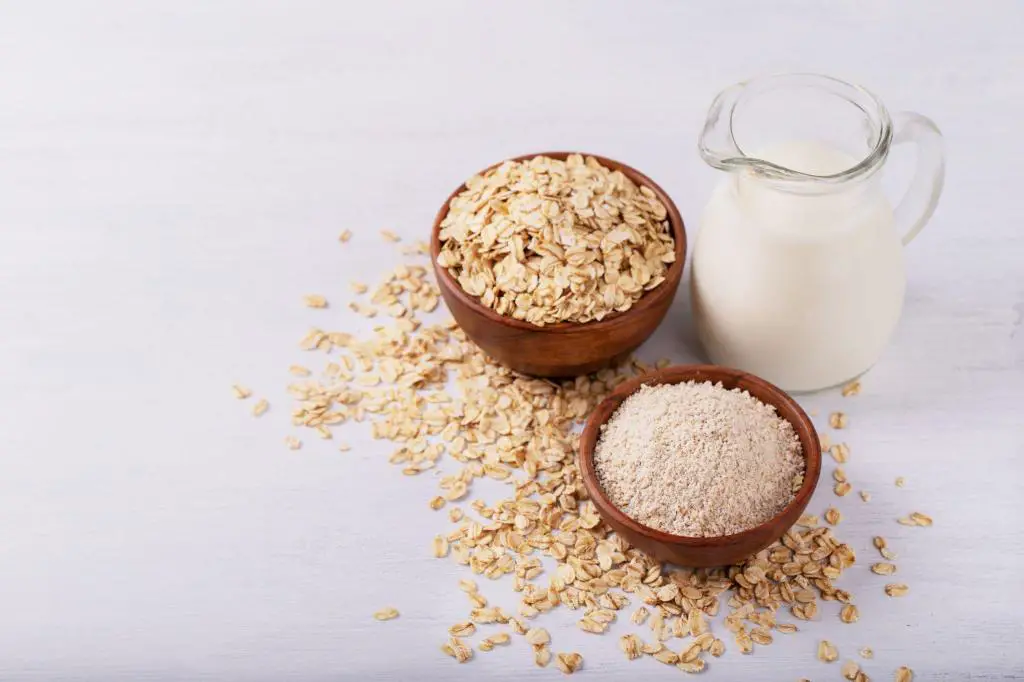Can You Drink Sour Oat Milk? Will Sour Oat Milk Make You Sick?

Have you ever opened your refrigerator, grabbed your carton of oat milk, and realized it’s gone sour? It can be quite an unpleasant surprise, especially if you were looking forward to enjoying a creamy cup of coffee or a bowl of oatmeal. But what exactly happens when oat milk goes sour? Can you still drink it, or is it a one-way ticket to a stomach ache?
In this article, we’re going to explore the world of sour oat milk and answer some of the most pressing questions about this popular plant-based milk alternative. We’ll take a deep dive into the science of sour milk, examine the potential health risks of drinking it, and offer some tips on how to prevent your oat milk from going bad in the first place.
So, whether you’re a long-time oat milk aficionado or a curious newcomer, read on to find out whether you can drink sour oat milk, and what to do if you accidentally let your milk go bad.
Oat Milk and Its Composition
Oat milk is a dairy-free alternative made by soaking and blending oats with water. The resulting mixture is then strained to remove any solids, leaving a smooth, creamy liquid. Oat milk is often fortified with vitamins and minerals, such as calcium and vitamin D, to provide the same nutritional value as cow’s milk.
According to the USDA, one cup of oat milk contains approximately:
- 130 calories
- 2.5 grams of fat
- 2 grams of protein
- 2 grams of fiber
- 19 grams of carbohydrates
Does Oat Milk Have a Flavor?
The flavor of oat milk can be described as subtle and slightly sweet, with a hint of nuttiness. Oat milk is naturally sweet, but some brands may add sweeteners such as sugar or syrups to enhance the flavor.
The natural sweetness of oats provides a delicate flavor that complements a variety of different beverages and dishes. Unlike some other plant-based milk alternatives, oat milk doesn’t have a strong aftertaste, making it an excellent choice for those who prefer a milder taste.
When compared to dairy milk, oat milk has a different flavor profile. While dairy milk is known for its creamy, rich taste, oat milk has a lighter, nuttier flavor that pairs well with a range of different foods and beverages. Oat milk’s mild flavor makes it an excellent choice for use in coffee, tea, smoothies, and baked goods.
Take note that the flavor of oat milk can vary depending on the brand and type of oats used. Some brands may add additional ingredients to enhance the flavor or texture of the milk, while others may use different types of oats that can impact the taste. Additionally, flavored oat milk options, such as vanilla or chocolate, are available, providing a more pronounced taste for those who prefer a stronger flavor.
| Also read: Does Adding Dairy or Sour Cream Help Reduce Acidity in Chili Dishes? |
Understanding Sour Oat Milk

Like any other food or drink, oat milk can go bad over time, especially if not stored properly. When oat milk goes bad, it becomes sour and starts to smell unpleasant.
This is due to the fermentation process that occurs when bacteria feed on the natural sugars in the milk. The development of bacteria that thrive in milk when exposed to air and moisture is what causes sour oat milk. As the bacteria multiply, they produce lactic acid, which gives the milk its sour taste.
Sour oat milk is not harmful to drink, but it might not taste good. In fact, most people find the taste of sour oat milk unappealing and prefer to throw it away. However, there are some instances where sour oat milk can still be used, depending on how sour it is and what you plan to use it for.
Comparing the Nutritional Value of Sour and Fresh Oat Milk
Oat milk has become a popular alternative to dairy milk, and for good reason. It’s vegan-friendly, lactose-free, and high in nutrients like fiber, calcium, and vitamin D. But what happens when oat milk goes sour? Does it lose any of its nutritional value?
First, let’s talk about the nutritional value of fresh oat milk. One cup of fresh oat milk contains around 120 calories, 5 grams of fat, 16 grams of carbohydrates, and 3 grams of protein. It’s also a good source of vitamins and minerals, including calcium, iron, and vitamin D. Oat milk is naturally low in saturated fat and cholesterol, making it a heart-healthy choice.
Now, let’s take a look at the nutritional value of sour oat milk. When oat milk turns sour, it’s safe to assume that some of its nutrients might be compromised. However, this doesn’t mean that sour oat milk is entirely devoid of nutrients. In fact, sour oat milk still contains most of the nutrients found in fresh oat milk, although in slightly different proportions.
One notable difference between fresh and sour oat milk is their fiber content. Fresh oat milk is high in fiber, which is great for digestive health, but sour oat milk might have a lower fiber content due to the bacterial fermentation process that takes place. However, the difference in fiber content is likely to be negligible, and sour oat milk is still a good source of fiber.
Can You Drink Sour Oat Milk?
If your oat milk is only slightly sour, it may still be okay to drink. You can do a quick sniff test to determine whether the milk has gone bad or not. If the milk smells sour but doesn’t have any mold or visible signs of spoilage, it might be safe to consume in small quantities. However, you should avoid drinking sour oat milk if you have a weak immune system or are pregnant, as it may increase your risk of foodborne illness.
If you plan to use sour oat milk in a recipe, you can still do so as long as the recipe calls for a sour taste. For example, sour oat milk can be used in baking recipes that require all purpose flour sourdough starter, as the sour taste will complement the bread’s flavor. Additionally, sour oat milk can be used to make smoothies or other beverages that require a tangy taste.
| Check out: Can You Eat Unopened Expired Sour Cream? |
Potential Risks and Side Effects of Drinking Sour Oat Milk
In addition to the risk of food poisoning, there are other potential risks and side effects of drinking sour oat milk. These include:
1. Allergic reactions
Some people may be allergic to oat milk. Drinking sour oat milk can increase the risk of an allergic reaction, which can cause symptoms such as hives, itching, and difficulty breathing.
2. Gastrointestinal issues
Consuming sour oat milk can irritate the lining of the digestive tract and cause symptoms such as nausea, vomiting, diarrhea, and abdominal pain.
3. Nutrient deficiencies
Drinking sour oat milk can also lead to nutrient deficiencies. When oat milk spoils, the vitamins and minerals in the milk may break down, reducing its nutritional value.
Can You Consume Oat Milk After Its Expiry Date?
While it’s always best to consume oat milk before its expiration date, consuming it a few days after the date has passed may be safe. The date on the container indicates the last day the product is guaranteed to be fresh, but it doesn’t necessarily mean that the product is unsafe to consume.
However, if the oat milk smells sour or has a thick, lumpy texture, it’s best to discard it. Trust your senses and use your judgment to determine if the oat milk is still safe to consume.
When it comes to consuming oat milk past its expiration date, it’s important to use caution and make an informed decision. While the date on the container is a guideline for freshness, it’s not a guarantee of safety. Depending on how the milk was stored, the conditions it was exposed to, and how long it’s been since the expiration date, consuming oat milk after its expiration date can pose health risks.
It’s important to note that the risk of consuming expired oat milk increases the longer it’s been since the expiration date. The longer the milk has been sitting in the refrigerator after its expiration, the greater the chance that harmful bacteria have grown, which can cause food poisoning.
If you’re uncertain about whether the oat milk is still safe to consume, use your senses to make an informed decision. Smell the milk and examine its texture before consuming it. If it smells sour or has a thick, lumpy texture, it’s best to discard it to avoid any potential health risks.
Conclusion
Sour oat milk can increase your risk of foodborne illness, but not all sour milk is unsafe to consume. If your oat milk is only slightly sour and doesn’t have any visible signs of spoilage, it might be safe to consume in small quantities. However, it’s always better to err on the side of caution and discard any oat milk that has gone bad.
To prevent oat milk from going sour, it’s important to store it properly, always in the fridge and in an airtight container, and to consume it within seven days of opening. Checking the expiration date before purchasing oat milk is also crucial.
In conclusion, while sour oat milk might not be harmful in small amounts, it’s always better to avoid consuming it. If you’ve consumed sour oat milk and are experiencing food poisoning symptoms, seek medical attention immediately. By properly storing oat milk and checking expiration dates, you can prevent it from going bad and ensure that it remains safe to consume.






